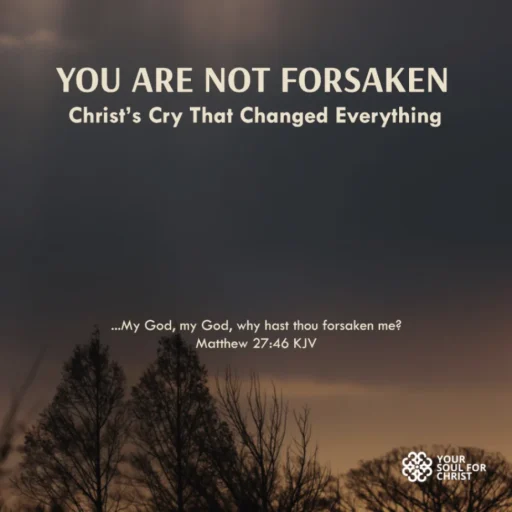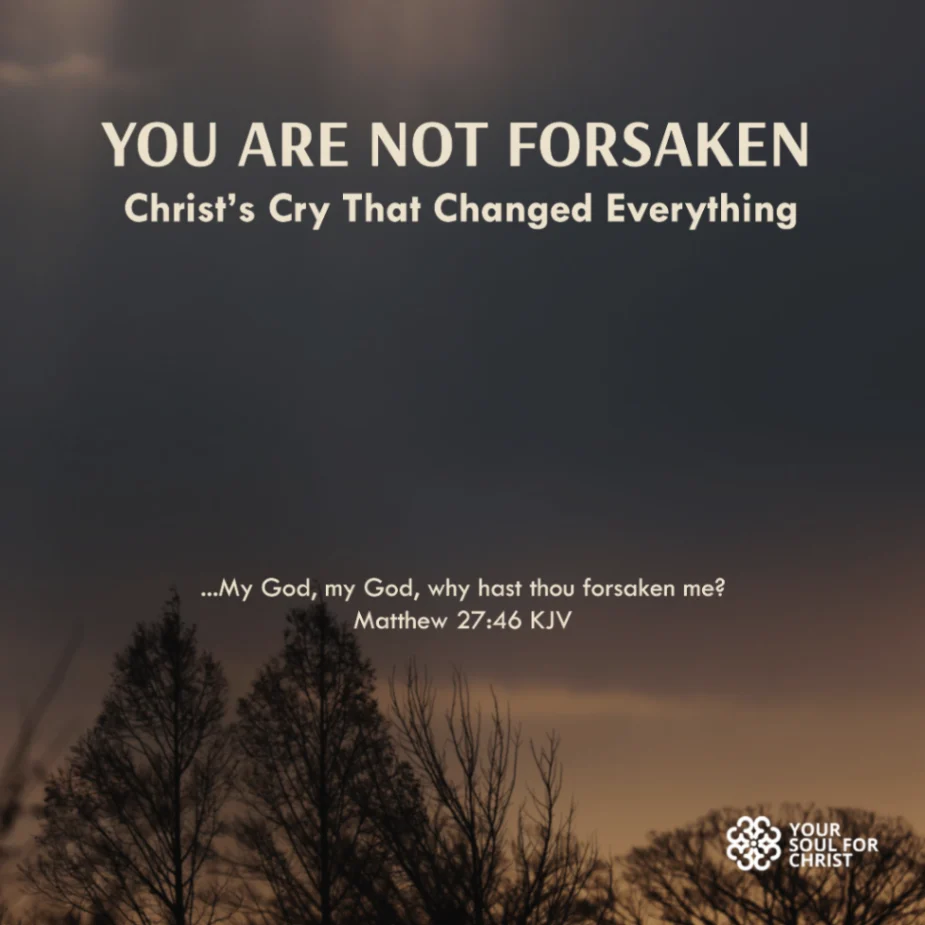And about the ninth hour Jesus cried with a loud voice, saying, Eli, Eli, lama sabachthani? that is to say, My God, my God, why hast thou forsaken me?
Matthew 27:46 KJV
In that heart-wrenching cry, He revealed both His suffering and the divine exchange taking place. Jesus, though sinless, embraced the weight of sin and separation. He entered our brokenness to ensure we would never be forsaken.
This cry held far more than pain. By quoting Psalm 22:1, Jesus deliberately connected His suffering to prophecy and to our human experience. His words didn’t simply express agony—they drew us into the story of redemption. Many of us have echoed that same cry, questioning God’s presence when heaven seems silent. Yet in those moments, we find comfort knowing Jesus understands. He didn’t watch from a distance—He entered the pain.
Job’s life offers a similar picture. He lost his children, his health, and his livelihood. Grief overwhelmed him, and God seemed silent. Still, Job didn’t turn away. He clung to the God he couldn’t understand. Jesus, like Job, refused to let go. Even in deep sorrow, He said, “My God.” That phrase reveals a faith that clings, not one that collapses. Sometimes trust sounds like desperation refusing to walk away.
Today, many believers carry burdens that feel unbearable. A parent prays through the night as their child suffers. A youth faces decisions they don’t understand. A pastor pushes through burnout while still ministering to others. In every struggle, Jesus’ cry speaks. It tells us He has been there, and He still meets us there.
Though the words “Why have you forsaken me?” seem to contradict God’s promises, they actually reveal the depth of His love. Hebrews 13:5 reminds us, “I will never leave thee, nor forsake thee.” Jesus made this possible. He experienced that moment of separation so we would never face it. He took the place we deserved so that we could enjoy a relationship we never could earn.
At the cross, Jesus did more than suffer. He fulfilled the plan of salvation. He tore the veil that stood between us and God. Jesus faced the Father’s silence to make way for our constant communion. He entered isolation to welcome us into intimacy.
If you’ve ever felt forgotten or abandoned, take heart—you are not forsaken. Christ’s sacrifice speaks louder than your fear. His love surrounds you, even when you don’t feel it. His presence remains, even when emotions fade. Jesus didn’t just take your place in death—He secured your place in God’s love.
When you find yourself crying out, “Where is God?”, remember Jesus’ response: “I’m here. I’ve walked that path. I understand.” He offers more than answers—He offers Himself. In Him, you find a love that holds, a peace that stays, and a promise that will never break.
Because of Christ, you belong. You are seen, known, and loved. You are not forsaken—you are forever held in grace.

